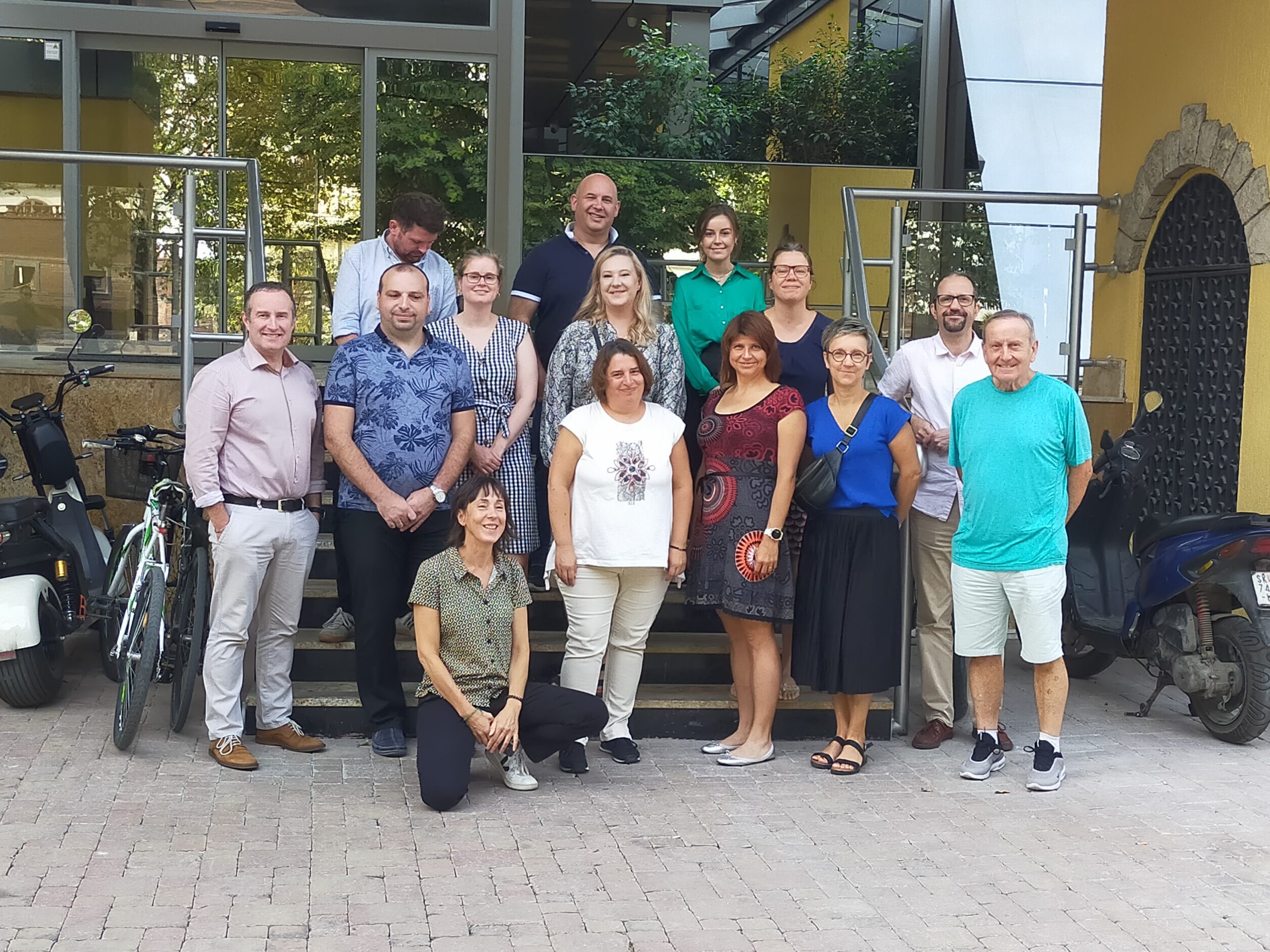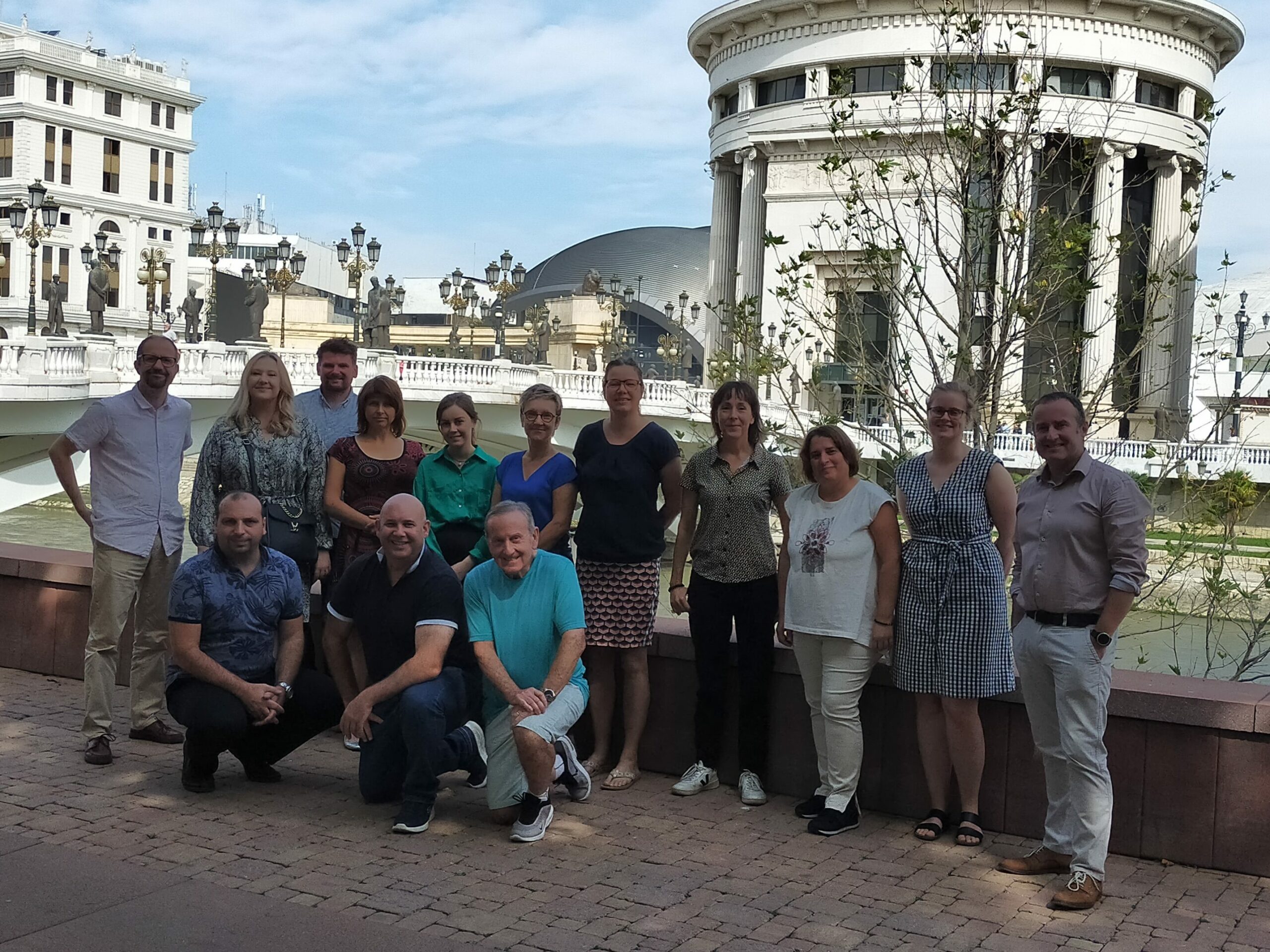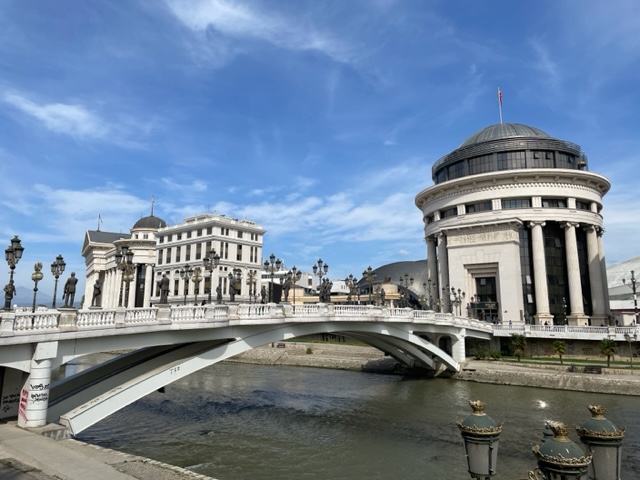The annual project meeting took the EnergyMeasures partners to the northern Macedonian capital Skopje at the end of September. For almost all of them a new destination, interesting and intensive debates, and lively exchange with representatives of the North Macedonian politics made the meeting a highlight in the course of the project.
For three years now, the partners in the EnergyMeasures project have been working to help around 3,600 households in seven European countries save energy. Advice and simple tools are being used to help households reduce their energy consumption in everyday life. Scientific monitoring of the project is intended to ensure that concrete advice for policymakers can ultimately be derived from the project’s successes, helping to effectively combat the problem of energy poverty in Europe.
At the end of September 2023, the project partners met for their annual meeting. The host was Habidom, a public housing developer in the northern Macedonian capital Skopje. The EnergyMeasures partners were not only able to experience the hospitality of the landlocked Balkan country and EU accession candidate, but also to intensively exchange information about the project’s progress and discuss what remains to be done by the consortium until the end of the project in February 2024.
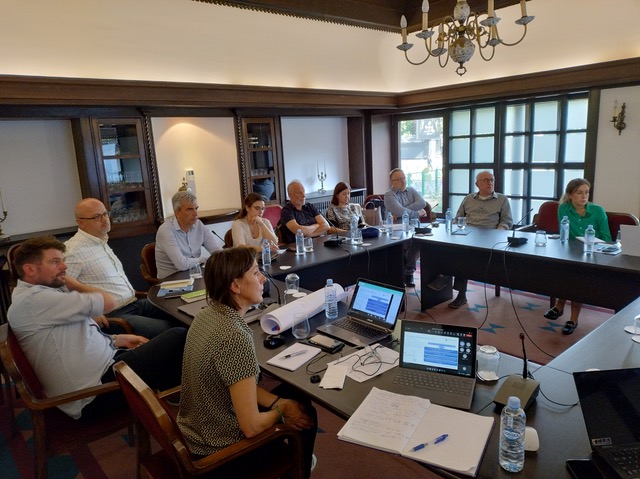
For example, the question of which methods can be used to quantify the progress made in the project on the basis of comparable figures was discussed. Impact quantification in the field of combating energy poverty is not an easy task. The different contexts in the seven countries involved make it difficult to compile comparable figures at all.
Measuring the project’s impact
While EnergyMeasures has direct access to electricity meter data in some countries, in others the savings achieved have to be actively shared by the participating households for reasons of data protection. How can we obtain a meaningful data basis that does justice to the European aspirations of the project and does not merely deliver seven national results? This question is currently being addressed by the EnergyMeasures partners in Work Package 4 of the project.
In a high-level policy stakeholder meeting at the Holiday Inn Hotel in Skopje, concrete ways of combating energy poverty were discussed, using North Macedonia as an example. In addition to welfare organizations, representatives of national government agencies and ministries as well as representatives of the municipal level were involved.
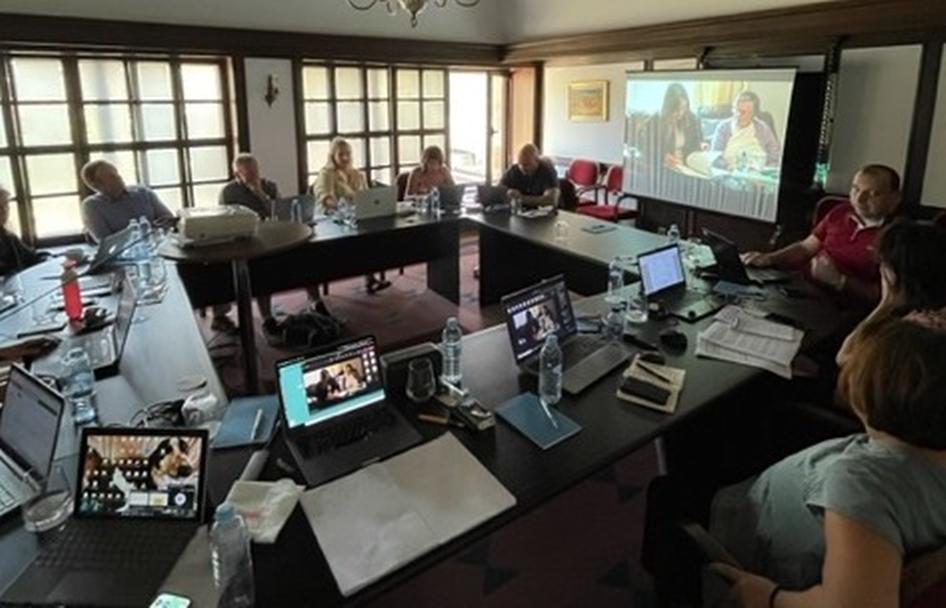
Listing existing obstacles for policy ensuring energy efficiency and mitigating energy vulnerability, the participants agreed that there was a lack of resources in the municipal administrations. Not only in terms of financial resources, but also in terms of qualified personnel. In competition with private-sector players, municipalities would have difficulties recruiting personnel with the necessary expertise. Doubts were also raised as to whether qualified personnel necessarily had to be employed locally in municipal administrations, or whether there might not be other ways of bringing expertise and know-how to communities and municipalities.
Also, there was unanimity on the issue of lack of financial resources to support energy efficiency measures in municipal administrations.
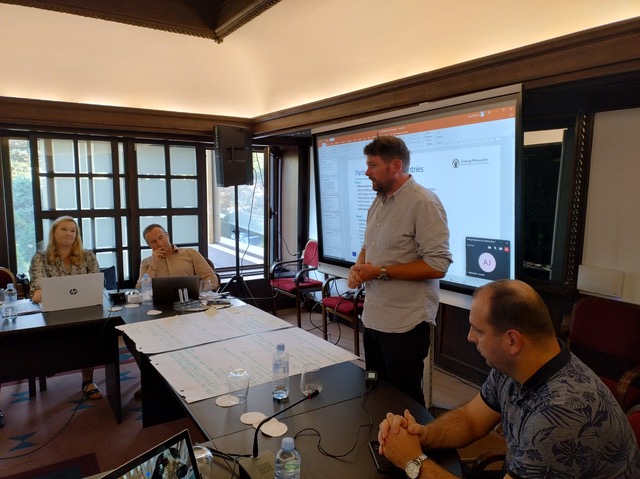
Corruption was cited as a further structural problem for North Macedonia. It stands in the way of the implementation of political projects at various governance levels, and accordingly also affects the field of energy efficiency.
Looking ahead to the final phase of the project – EnergyMeasures will run until February 2024 – the question of how best to communicate the findings and results of the project is now also coming into focus. Various partners, like the North Macedonians, were able to report lively political interest in the project. This is gratifying, since it is a declared goal of EnergyMeasures that the project results find their way into concrete local and national policies to combat energy poverty.
